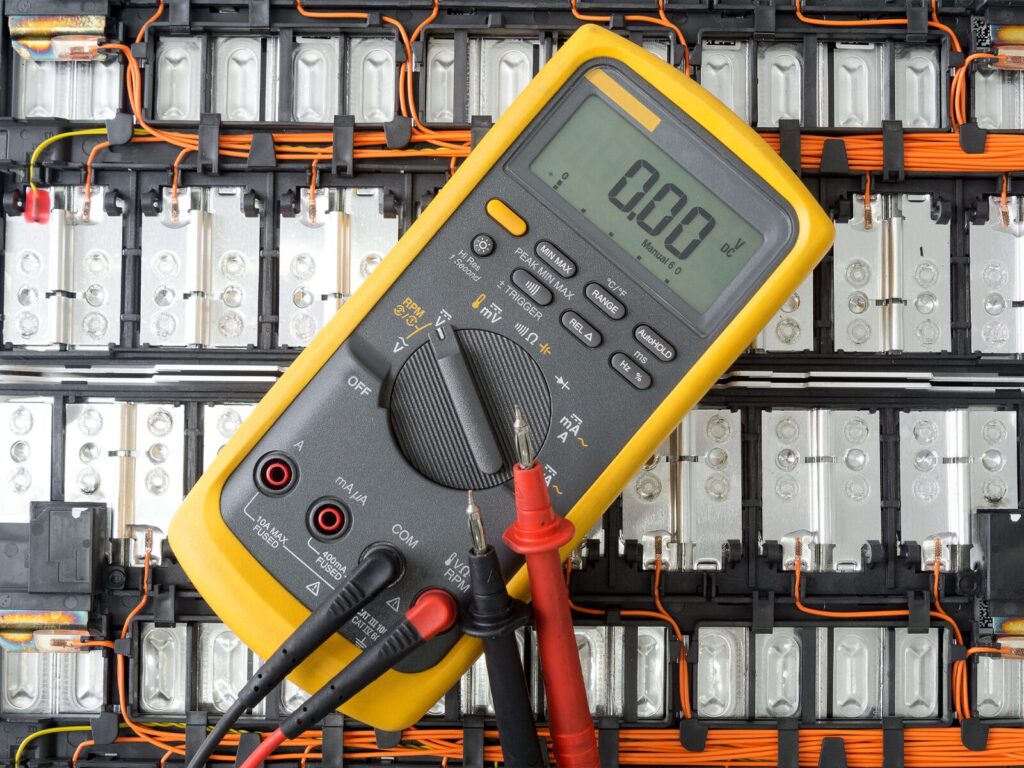ATS strengthens the growing electric vehicle (EV) industry with abuse testing of lithium-ion batteries.
Electric vehicles operating with lithium-ion (Li-ion) batteries are a popular alternative to traditional combustion engines. Their high energy density makes them perfect for increased energy storage, allowing vehicles to operate longer between charging sessions. However, the chemical makeup of lithium-ion batteries makes this battery type sensitive to voltage and temperature changes, leading to an increased risk of thermal runaway, fire, or explosion.
Lithium-Ion Battery Abuse Testing
Electrical Testing
A common form of battery abuse, electrical abuse can trigger extreme rises in temperature, chemical reactions, and ultimately thermal runaway. Users may unintentionally harm their vehicles by overcharging. Additional causes of electrical abuse and malfunction include overvoltage, undervoltage, and forced discharge. Batteries may also short-circuit due to misuse or age.
ATS induces electrical abuse in several capacities to assess how the battery performs and ultimately fails:
Extreme Temperature Testing
Lithium-ion batteries operate best in a specific temperature range. When exposed to extreme internal or external temperatures, the battery’s performance may decrease while safety hazards increase. We can subject a battery cell or pack to thermal stresses:
Mechanical Testing
Li-ion batteries consist of a cathode, an anode, a separator dividing the two, and an electrolyte. If the separator is punctured or damaged under mechanical abuse, the cathode and anode may react and cause thermal runaway, fire, or explosion. Mechanical testing simulates both normal operation and the scenarios that may compromise the battery, from instances as extreme as a collision to driving on unpaved, rocky roads.
To simulate the physical and mechanical conditions, we can perform battery tests in a controlled laboratory environment:
Why Test EV Batteries?
Safety
Batteries will be exposed to extreme conditions in use, especially after a collision or incident. Misuse, malfunction, or abuse can have disastrous repercussions for passengers and manufacturers.
Abuse testing with ATS simulates the conditions of normal operation or adverse events, such as:
- Collision or rollover
- Operation past useful life
- Misuse and abuse
EV battery manufacturers may also pursue third-party testing to uncover and mitigate safety risks before mass production and distribution, reducing liability and allowing the manufacturer to maintain a good reputation.
Design
Our abuse testing of Li-ion batters helps uncover design flaws, failure modes, and chemical reactions in batteries operating under normal and abnormal circumstances. Lab tests in a controlled environment can accelerate the degradation and abuse processes to help our experts see how abuse affects the battery’s longevity.
Regulatory Compliance
We test to ensure compliance with national and international regulations. With the rise in demand and distribution of electric vehicles and lithium-ion batteries, manufacturers must also keep up with changing industry standards to ensure the efficacy and compliance of their products.
About ATS
ATS performs consulting engineering, calibration, inspection, and testing services to meet our clients’ diverse needs. We optimize our services through a company-wide ISO 9001:2015 Quality Management System that stresses safety and regulatory compliance:
- Qualified by multiple industry organizations, including A2LA and NADCAP
- CPSC-approved lab
To learn more about our standards and certifications, click here.
Contact Us
Call +1 (888) 287-5227 or complete the request form on this page to schedule abuse testing of lithium-ion batteries with qualified ATS technicians. We will direct our keen mechanical, electrical, and thermal insight towards evaluating your product before it reaches the market.



